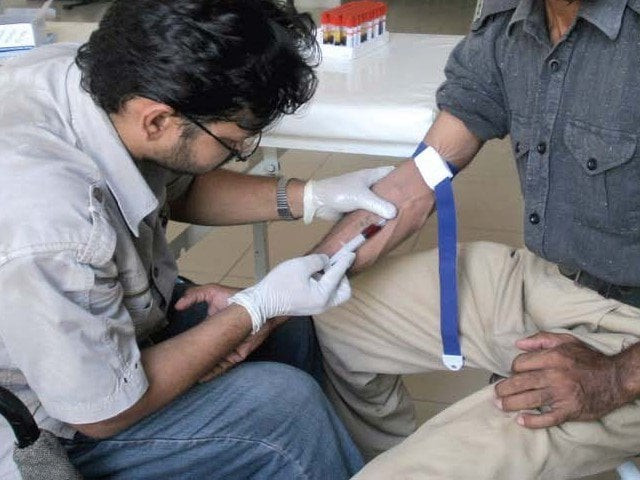Pakistan to significantly reduce hepatitis by 2021
The five-year plan launched to bring down chronic cases and new infections

The five-year plan launched to bring down chronic cases and new infections. PHOTO: EXPRESS
This is the first milestone is part of the vision to eliminate the disease by 2030 as per the WHO global elimination targets. Federal Minister for National Health Services Saira Afzal Tarar, while speaking at the framework’s launch, said that Pakistan has one of the highest burdens of Hepatitis B and C in the Eastern Mediterranean Region (EMRO). “There is a need to put in place a consensus National Strategic framework to control the spread of the disease,” she said.
According to 2008 National Hepatitis Survey, there are as many as 12 million people suffering from hepatitis B or C in the country. Within the EMRO, she said, Pakistan and Egypt bear 80 per cent of hepatitis disease burden. Describing the role of her ministry, Tarar said that they were responsible for devising federal-level policy, regulations and coordinating with stakeholders and provinces.
“As a policy, we realised that Pakistan also needs to align its steps towards disease elimination, therefore, we asked international experts to guide us as to which steps we should take to achieve disease-elimination by 2030,” the health minister explained. She added that the second key question they had to answer was of safe blood transfusion and the third was to ensure strict adherence to infection-control practices in healthcare facilities.
“Finally, we must encourage people to get tested and treat those who are infected,” she asserted. The plan also seeks to improve the quality, and scale of coverage for hepatitis B and C prevention and strengthen testing and diagnosis for the diseases. The health minister said that apart from the first countrywide survey in 2008, the ministry had also set up a technical advisory group (TAG) on hepatitis. This body, she said, guides the federal and provincial hepatitis programmes on controlling the disease.
On the advice of this TAG, Tarar said that they introduced a new oral hepatitis drug and negotiated with pharmaceutical companies to bring its cost down. “I am very happy to announce that globally we have the cheapest hepatitis drugs available in Pakistan,” she affirmed.
The minister added that the TAG had also developed a new hepatitis C treatment guideline, which has been provided to the provinces to incorporate. Noting how most of the functions of the ministry had been devolved to provinces, she said that the role of the provinces will be critical in implementing the strategic framework on the ground to reduce hepatitis prevalence and incidence.
Published in The Express Tribune, October 9th, 2017.



















COMMENTS
Comments are moderated and generally will be posted if they are on-topic and not abusive.
For more information, please see our Comments FAQ